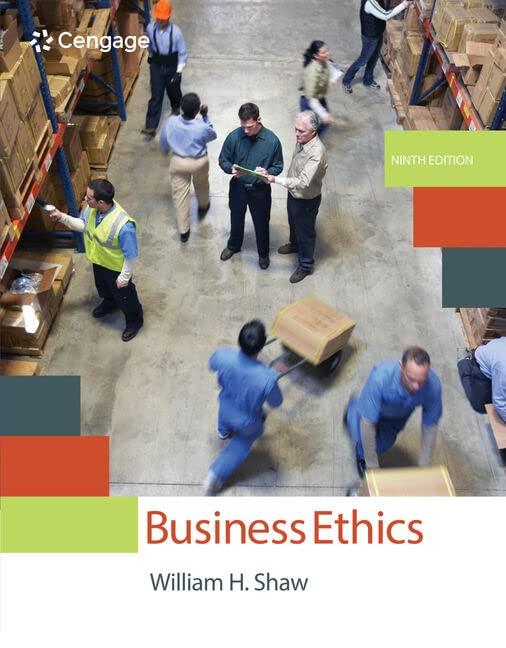KERMIT VANDIVIER COULD NOT HAVE predicted the impact on his life of purchase order P-237138, issued by
Question:
KERMIT VANDIVIER COULD NOT HAVE predicted the impact on his life of purchase order P-237138, issued by LTV Aerospace Corporation.28 The order was for 202 brake assemblies for a new Air Force light attack plane, the A7D, and news of the LTV contract was cause for uncorking the champagne at the B. F. Goodrich plant in Troy, Ohio, where Vandivier worked. Although the LTV order was a small one, it signaled that Goodrich was back in LTV’s good graces after living under a cloud of disrepute. Ten years earlier, Goodrich had built a brake for LTV that, to put it kindly, hadn’t met expectations. As a result, LTV had written off Goodrich as a reliable source of brakes.
LTV’s unexpected change of heart after ten years was easily explained. Goodrich made LTV an offer it couldn’t refuse—a ridiculously low bid for making the four-disk brakes. Had Goodrich taken leave of its financial senses?
Hardly. Because aircraft brakes are custom-made for a particular aircraft, only the brakes’ manufacturer has replacement parts. Thus, even if it took a loss on the job, Goodrich figured it could more than make up for it in the sale of replacement parts. Of course, if Goodrich bungled the job, there wouldn’t be a third chance.
John Warren, a seven-year veteran and one of Goodrich’s most capable engineers, was made project engineer and lost no time in working up a preliminary design for the brake.
Perhaps because the design was faultless or perhaps because Warren was given to temper tantrums when criticized, co-workers accepted the engineer’s plan without question.
So there was no reason to suspect that young Searle Lawson, one year out of college and six months with Goodrich, would come to think Warren’s design was fundamentally flawed.
Lawson was assigned by Warren to create the final production design. He had to determine the best materials for brake linings and identify any needed adjustments in the brake design. This process called for extensive testing to meet military specifications. If the brakes passed the grueling tests, they would then be flight-tested by the Air Force.
Lawson lost no time in getting down to work. What he particularly wanted to learn was whether the brake could withstand the extreme internal temperatures, in excess of 1,000 degrees F, when the aircraft landed.
When the brake linings disintegrated in the first test, Lawson thought the problem might.........
Discussion Questions 1. Identify the main characters in this case, and explain what happened.
2. To what extent did Lawson, Vandivier, and Gretzinger consider the relevant moral issues before deciding to participate in the fraud? What was their reasoning?
What would you have done if you were in their situation?
3. How did Sink and Line look at the matter? How would you evaluate their conduct?
4. Do you think Vandivier was wrong to work up the qualification report? Explain the moral principle or principles that underlie your judgment.
5. Was Vandivier right to “blow the whistle”? Was he morally required to so? Again, explain the moral principles on which your judgment is based.
6. Describe the different pressures to conform in this case and discuss the relevance of the concepts of groupthink and diffusion of responsibility.
Step by Step Answer:






